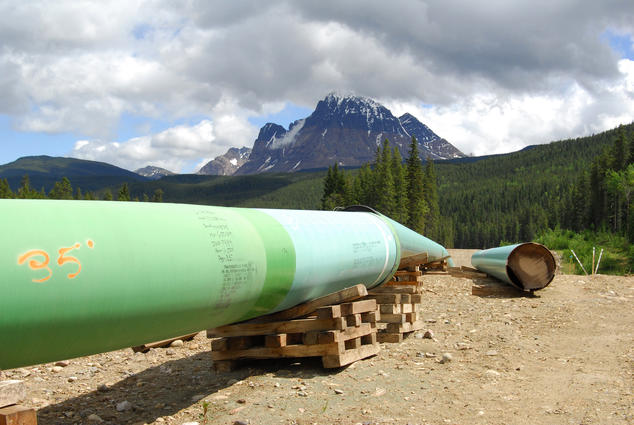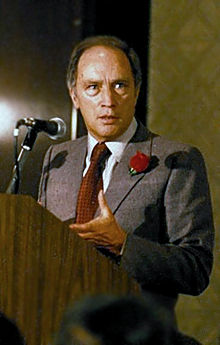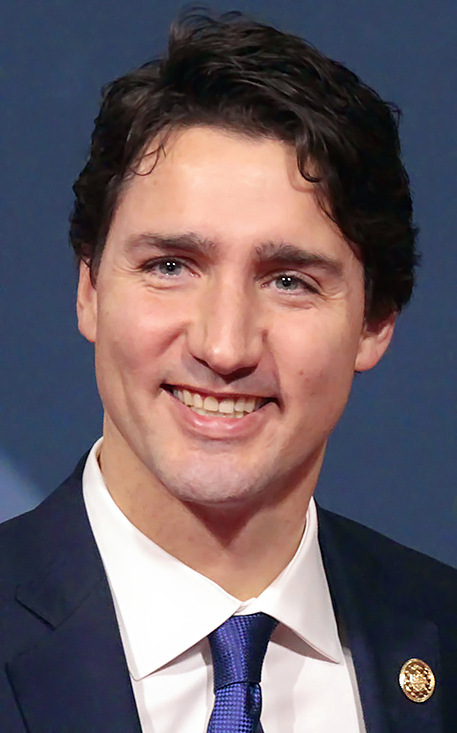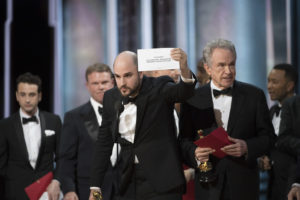
photo courtesy of Rblood: Flickr
To understand Justin Trudeau, Canada’s 23rd Prime Minister, one must understand Canada’s own plights under his father, Pierre Trudeau.
Pierre Trudeau accomplished a lot as the Canadian Prime Minister from 1967-1979 and 1980-1984.
When he began his first term as prime minister, Canada’s white, English speaking population was engaged in racist and discriminatory policies dating back to the country’s inception.
Throughout Canada’s history Native Canadians were constantly under attack and the children of these natives were forced to attend brutal assimilation schools. In response to these assimilationist policies, Pierre Trudeau was well quoted, saying that a “society which emphasizes uniformity is one which creates intolerance and hate.”
More specifically, these policies uprooted Canada’s indigenous populations including Inuit, Metis and over 600 First Nation peoples. Under state policies, indigenous children were forcibly removed from their homes, and harshly educated in schools which aimed to disassociate them from their cultural identity. In an associated press interview, Native Canadian Michael Cachagee said “I was beaten. I was put in tubs of hot water. I suffered great pains of hunger. I was force-fed rotten food.” and noted that “the intent was to destroy the Indian.”
Discrimination also manifested itself as late as the early 20th century when many religious groups and races were relegated to second-class citizenship; even as late as 1953, a pacifist group of Russians, the Doukhobors, were prohibited from voting in British Columbia.

Canadian politicians in history.
photo courtesy of Wikimedia Commons
When Pierre Trudeau entered office in 1968 there was also discrimination against French speaking Canadians, who made up 9% of the employed population but constituted 25% of the country’s inhabitants. In truth, Canada’s racism and nationalism were hurting their economy, and to make things worse there was a growing gap in the workforce – one which could be easily filled by more reasonable immigration policies.
Pierre Trudeau helped bring an end to this discrimination. He supported much needed immigration reform as well as the termination of the dreaded cultural assimilation policies which had effectively forced immigrants and natives alike to give up their cultural identity. The immigration reform helped to supply much needed growth by filling labor gaps in the population, and it also opened a discourse about pervasive racism in Canadian society. Alongside these changes, multiculturalism became official policy in 1971.
Upon enacting these multiculturalist policies, Pierre Trudeau dedicated about 23 million Canadian dollars each year –close to 50 million Canadian dollars today– on policies aimed at promoting multiculturalism. Close to 19 million Canadian dollars went to around 2000 groups focused on multiculturalism throughout Canada. Opposition parties grumbled that the money was used to curry favor in the hopes of his reelection.
Nonetheless, Pierre Trudeau and others helped shift Canada from an isolationist and discriminatory nation to one which in 2014 accepted roughly 250,000 immigrants, close to .7% of its population. The United States, in contrast has accepted more as a raw number, 486,000 legal refugees each year, but only .15% of their population.
The Current Prime Minister of Canada, Justin Trudeau, is often belittled by competing politicians as inexperienced.

Despite this, he has made a name for himself as Prime Minister of Canada. He led Canada’s Liberal Party to a historic victory which marked the largest gain in parliamentary seats by any party, a shift of 36 seats to 184 seats. Much like his father, he is tasked with problems surrounding immigration and refugees while he works to address Canada’s halting economy.
Justin Trudeau is leveraging Canada’s unique position as a more financially stable country coming out of the Great Recession of 2008 to secure cheap credit and spur economic growth through infrastructure creation. His unique solution to reviving Canada’s economy – one which replaces austerity measures with increased spending – has received praise from both the IMF and World Bank.
However, all is not perfect as Justin Trudeau has received criticism from environmentalists for his support of the Keystone XL pipeline. Despite the criticism, Justin Trudeau supports the pipeline for the jobs it creates, noting that the pipeline would help eliminate the costlier and more dangerous system of railcar oil transport. While railcar transport is dangerous and generates greenhouse emissions, a pipeline still carries the possibility of dire consequences. The company behind Keystone, TransCanada, had 12 oil spills from one of their state-of-the-art pipelines in 2010.
The project would also transport tar sands, a more impure form of oil which, according to NASA Climatologist James Hansen in his Scientific American interview, is “one of the dirtiest, most carbon-intensive fuels on the planet” and that stepping up its production and mining “is a step in exactly the opposite direction, indicating either that governments don’t understand the situation or that they just don’t give a damn.”
Tar sands are also thicker, more acidic and corrosive than typical crude oil. In a report conducted between 2007 and 2010 by the Cornell University Labor Institute, pipelines carrying tar sands spilled three times more per mile than the national average for US pipelines carrying conventional crude.
Justin Trudeau is also struggling with how to interact with President Trump.
Canada’s relationship with America is best described by Pierre Trudeau’s famous quote “Living next to [America] is in some ways like sleeping with an elephant. No matter how friendly and even-tempered is the beast, if I can call it that, one is affected by every twitch and grunt.” Pierre Trudeau’s quip has suddenly regained relevance as his son works to establish an equitable relationship between Canada and the fledgling Trump administration.
While they can agree on some things – Keystone among them – Trudeau and Trump are leading their countries in decidedly different directions. Trump’s successive and legally embattled travel bans are considered an opportunity by Canadian politicians to win over young immigrants who would help provide economic stimulus. In documents destined for former Immigration Minister John McCallum, the advantages were expressed: “Any proposed measures to ease the immigration process for temporary residents in the U.S., such as start-up entrepreneurs, are unlikely to proceed under the Trump administration. Canada’s Start-Up Visa could provide an attractive alternative for these applications.” Given the current trends in immigration for either country, with Canada remaining open and America beginning to isolate itself, Canada could stand to gain some talented workers in the very near future.





